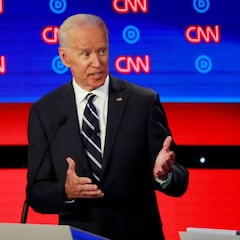$600 unemployment benefits: can I work and get extra $600 a week?
There have been plenty of ideas thrown on the table including a bonus for finding a job and extending benefits. But you can still get benefits while working.

American's unemployment remains high with millions of citizens struggling to make ends meet because of that. The $600 unemployment benefits those who have been let go from their jobs have been receiving are stopping at the end of July. That leaves millions of Americans wondering what they will do for income during the coronavirus pandemic. The number of cases continue to increase in several states and more measures to close down the economy could be on the way but Republicans seem to be against an extension of these benefits.
There have been several ideas thrown on the table because those on both side of the political divide are aware that something has to be done to help reeling families. One of those ideas is paying those who find work a $600 bonus in order to encourage people to seek work.
“The idea is to give a bonus to incentivize people to come off of unemployment and go back to work,” financial expert Kirk Cassidy said. “For many people who are collecting almost $900 a week right now -- that is significantly more than they were making when they were working.”
Nothing has been decided but with the election coming in November, both political parties are keen not to alienate any voters with a decision to cut of benefits.
Extra $600 in weekly unemployment benefits runs out next month. Here's how to prepare https://t.co/DOrd7LczRI
— Statesman Business (@aasbusiness) June 17, 2020
Can I work and still get unemployment benefits?
Workers can continue getting a partial unemployment check if they’re recalled on a part-time basis. Full-time workers aren’t eligible. The way to receive this is via a working-sharing plan. Your company reduces the hours of all or some of its workers. Workers then receive a pro-rated unemployment benefit to compensate for the money lost through drop in hours.
Maryland's government website explains the work-sharing scheme as:
"Work Sharing (WS) is a voluntary Unemployment Insurance program that provides employers with an alternative to layoffs when they face a temporary and unexpected downturn in business. It allows employers to divide available hours of work among a group of employees instead of implementing a full layoff to a few employees. It allows employees to keep working but with fewer hours. While you are working fewer hours, you will receive a percentage of your regular Unemployment Insurance (UI) benefits. You may choose not to participate."
- When will a decision be made on a second stimulus payment?
- How can I talk to a real person when phoning the IRS hotline?
- How California is reopening its economy
- Stimulus check US: how would $4,000 coronavirus credit work?
Unemployment benefits debate continues
The $2.2 trillion coronavirus relief law, known as the CARES Act, enhanced jobless pay for these individuals. However, the extra cash, currently $600 a week, will end after July 31. Some states are ending it a week earlier, on July 25. That $600 is a lot higher than the $378 a week in state unemployment benefits prior to the relief law, according to the Labor Department. The law boosts that weekly total to $978 a week — a 159% increase.
Normally, the state would replace about 40% of an unemployed person's wage but the extra benefit topped up their income to help during the pandemic. Michele Evermore, senior policy analyst at the National Employment Law Project, says 31 July was an arbitrary date picked and does not reflect anything on the horizon reflecting a recovery.
“In late March, we all thought this was going to pass in a few months,” says Evermore. "Now, I really don’t think we’re going to be back to business as usual for a quite while.”
Related stories
Some states have offered unemplyed people an extra 13 weeks of benefits and others have offered 26 as part of the Pandemic Emergency Unemployment Compensation (PECU) program for workers who have exhausted their state benefits. Montana, for example, are offering unemployed citizens 41 weeks of unemployment.
Ending the extra $600 on August 1 would “wreak havoc in the economy,” says Evermore.

